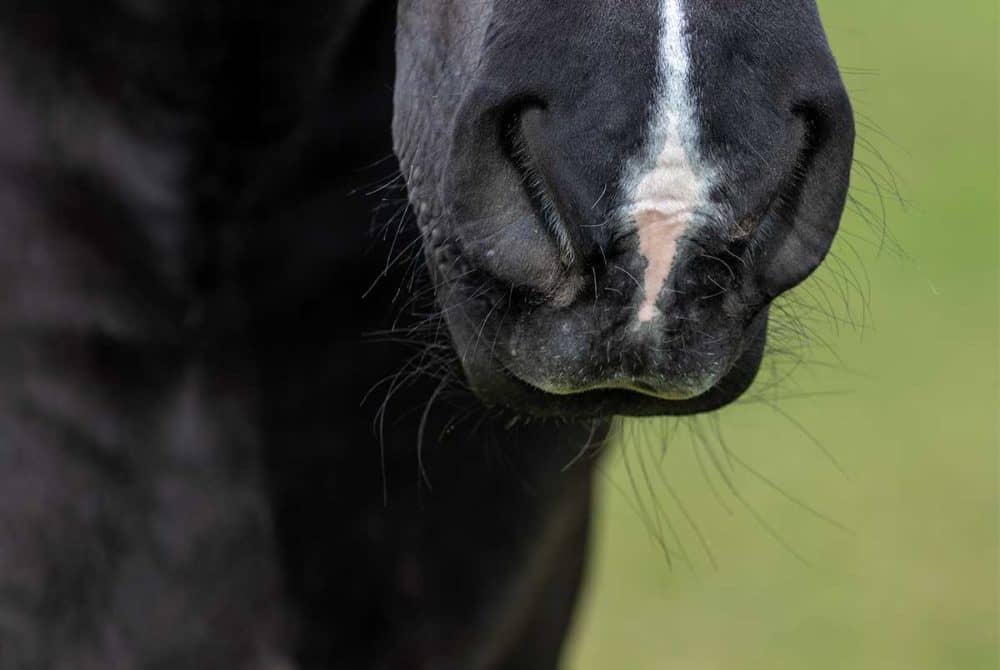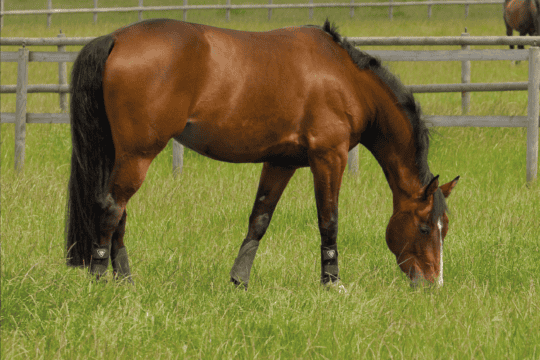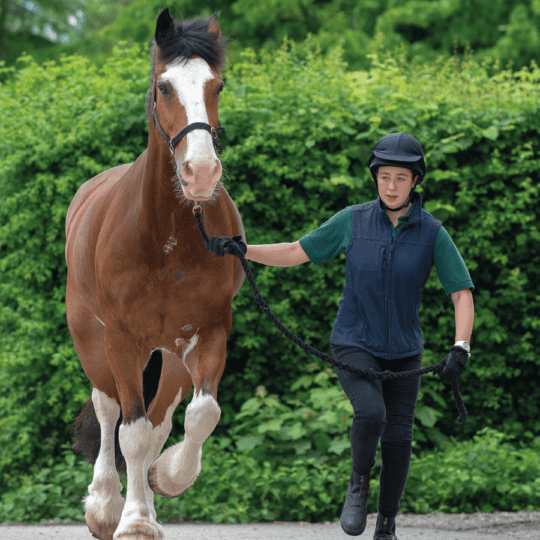Equine nosebleeds
Posted 14th August 2020
A horse with a nosebleed can seem alarming. Victoria South talks us through how vets investigate this problem

There are lots of different problems that can cause a horse to bleed from his nostrils. While reasonably common and, in some instances, resolvable on their own without much need for intervention, some causes are immediately life-threatening and need emergency veterinary attention. Knowing the difference might save some panic if the time comes, although it’s important to understand what circumstances are most likely to indicate an emergency. Here’s a line-up of the usual suspects.
Did you know?
The medical term for a nosebleed is epistaxis.
All about context
The nature of the discharge from the nostril may help vets to accurately identify what caused the nosebleed. Blood that’s bright or dark red suggests it’s fresh, whereas if the discharge is brown then the bleeding probably happened a few days previously. It’s also helpful to know if the bleeding is foul-smelling, or accompanied with pus or mucous, since this suggests infection or inflammation.
Top tip
If your horse has signs of swelling, cuts or abrasions on his face, as well as a nosebleed, it’s important to ring your vet for further advice and possible examination because they may be signs of trauma to the head.
Trauma
Horses have small fragile blood vessels on the inside of their nasal passages, which can be damaged if a twig or some other kind of debris sticks up their nose. They may also suffer trauma to their face or head from kicks or knocking into something solid, which can cause bone fractures and, simultaneously, nosebleed.
Alternatively, if a horse rears over backwards he might run the risk of over-extending his neck, which could result in ripping the fragile bones underneath the skull. This would result in a nosebleed from both nostrils and be accompanied by neurological signs – in cases such as these, it’s very important that your vet is consulted urgently.
Find out more about nosebleeds and their causes in October Horse&Rider, on sale 20 August 2020.










